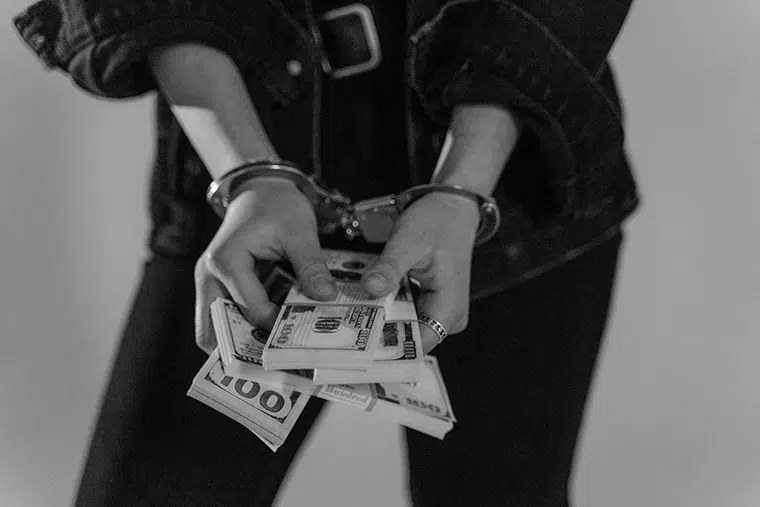To the average Canadian, the word theft is just the legal term for stealing anything, no matter what it is or how it was done. While that’s not necessarily wrong, theft has a specific meaning in the legal system. In this post, you’ll learn about the different types of “theft” charges, minimum sentences and possible defences of each. Remember that every case is different and the information here is not legal advice.
Convictions for theft and similar offences can make it extremely difficult to find work or travel in the future.
If you’re charged with a crime involving theft, or any other criminal charge, the first thing you need to do is hire a criminal lawyer in Toronto. Trying to represent yourself or waiting until right before your court date to hire someone reduces your options and chances of getting the charges dismissed.
Theft
Theft is taking something that belongs to someone else with the intent to deprive that person temporarily or permanently of it.
For you to be found guilty of theft, the Crown prosecutor has to prove “beyond a reasonable doubt” each of the three following elements:
- That you moved, started to move, caused something to be moved, that belonged to someone else;
- That you moved the property with the intent to steal it without the owner’s consent, and;
- The estimated value of the property.
What are Possible Defenses to a Theft Charge?
Proving identity is an issue in Theft cases. Even if the Crown has video footage, there are many ways to attack it or get it excluded. Common defences to theft charges also involve showing there was no intent to steal. The Crown must prove beyond a reasonable doubt that you intended to steal. Even if they can establish identity, having someone else’s property in your possession could have been a mistake or misunderstanding of some kind, which means there was no intent.
But every case is different, which is why a Toronto theft lawyer will speak to you, get your side of the story, get disclosure of evidence from the Crown and decide which areas of the Crown’s case are the weakest before deciding on how to handle the case.
Theft Over $5,000 vs Theft Under $5,000
Theft over $5,000 is an indictable, or more serious offence, and carries a maximum 10-year prison sentence. If you’re convicted of theft over $5000 first offence, some factors that may be considered when deciding the sentence include a previous criminal record., the value of the goods and the level of trust that was breached.
Theft under $5,000 is a hybrid offence, meaning the Crown can choose to prosecute it as an indictable or summary offence (less serious) depending on the facts of the case.
But make no mistake, even a summary conviction is a conviction on your criminal record and can make it hard to find work or travel in the future.
Which is why you don’t say anything to the police or make any decisions about your case without speaking to a lawyer first.

Robbery & Extortion
The difference between robbery and theft is that, in a robbery case, the goods are usually stolen directly from the owner and intimidation, violence or threats are involved. Armed robbery is when a weapon of any kind is used in a robbery.
Extortion is the crime of using threats, accusations, menacing behaviour or violence to get something, get someone to do something or cause something to be done.
Robbery, armed robbery and extortion are all indictable offences, and all three carry a maximum life sentence.
A robbery conviction does not have a mandatory minimum, but armed robbery and extortion both have mandatory minimum 4 years’ sentences if convicted. But prior convictions, the use of firearms and the association with a criminal organization can increase the minimum sentences for armed robbery and extortion.
What are Possible Defences for Robbery & Extortion?
Identity is also an issue in Robbery and Extortion cases. Witnesses may have only caught a glimpse of the person or were confused because of everything that was happening at the time, which can be a problem for the Crown in a trial and a reason for acquittal.
That’s why police will try to get someone to confess or admit they were at the scene by conducting long, stressful interrogations. If they did in your case, your Charter rights might have been violated, which means the admission and evidence they find because of it can be excluded.
Break and Enter
Break and enter involves entering a dwelling or non-dwelling (like a business), or intending to do so, with the intent of committing another offence. Breaking into a place can be as simple as opening a door or reaching into an open window.
If a person breaks into a place and steals property, they could be charged, in addition to break & enter, with theft, with possession of property obtained by crime and mischief for any damages caused. If someone is home at the time of the break and enter, you can also be charged with Home Invasion offences.
Break and enter into a non-dwelling carries a maximum sentence of 10 years. B&E into a home and home invasion are treated more seriously and can result in a life sentence. Some aggravating factors that impact a sentence include property damage, carrying tools for break and entry, using a disguise and the level of sophistication and planning involved.
Possible Defences in B&E Cases
Like Robbery charges, proving identity may be problematic for the Crown to do. We also carefully look at all forensic, DNA and fingerprint evidence and challenge how it was gathered at the scene and tested at the lab. There may also have been potential Charter violations during the collection of evidence.
Fraud
Fraud is depriving someone or the public of any property, money, valuable security or service by deceit, falsehood or other fraudulent means.
Some examples include:
- Ponzi schemes
- Employee benefits fraud
- Employer fraud
- Insurance benefits fraud
- Bank fraud
- Contract fraud
- Cheque fraud
- Credit card fraud
Fraud charges, like theft, are also separated into charges of fraud under and over $5,000. The maximum sentence for Fraud under $5,000 is two years in prison. If a person is convicted of Fraud over $5,000 and the value of the object in question is over one million dollars, the minimum sentence is two years.
What are Possible Defences for Fraud Charges?
Proving fraud can often involve relying on a “paper trail” of evidence. If just one piece of evidence is removed, the case falls apart. A skilled fraud lawyer in Toronto will fight to exclude evidence based on the grounds of relevance, prejudice or violation of Charter rights, to name a few.

